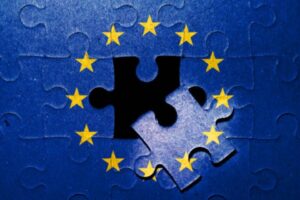The European Union has announced sanctions against 5 more individuals involved in the Russian annexation of Ukraine’s Crimea Peninsula, according to a press release published by the European Council.
The individuals were designated by the Council on 21 February 2022 due to their status as members of the State Duma, or legislative assembly, of the Russian Federation.
These individuals were elected to represent the illegally annexed Crimea Peninsula and the city of Sevastopol on 19 September 2021, meaning that they represent a city and territory that was stolen. Two of these persons are the head and deputy head of the Sevastopol electoral commission.
The major infraction as far as the EU is concerned is that since Russia annexed the Crimea Peninsula in 2014, there has been a continuous threat to Ukraine’s territorial sovereignty posed by Russia and Russia-backed separatists inside of Ukraine’s borders, as well as ongoing combat in the country’s Donbas region.
With this new round of sanctions, there are now 193 persons and 48 entities that the EU has designated for targeted sanctioning.
The consequences of sanctions include but are not limited to: asset freezes, a ban on funding from the EU or European organizations, and travel bans. Essentially, sanctions just cut off the targeted individuals and entitles from the EU and EU-associated countries.
The first round of sanctions was put into force by the Council on 17 March 2014. Since then, the designation list has grown steadily year-after-year and has been renewed every 6 months. The latest renewal covers the sanctions until 15 March 2022, when they will likely be extended for another 6 months.
Other measures taken by the EU against Russia include economic sanctions targeting specific parts of the Russian economy, which are good until 31 July 2022 and will likely be extended again as well.
Targeted and economic sanctions against Russia have certainly crippled parts of the Russian economy and neutered certain individuals and entities from taking more action. However, combat in the country that was sprung by the 2014 Russian annexation of the Crimea Peninsula has been ongoing for nearly 8 years as of writing.
Given the recent escalation of military movement on Ukraine’s border and the evacuation of the separatist-held cities of Luhansk and Donetsk, sanctions appear to not have worked as effectively as the Council had hoped.











